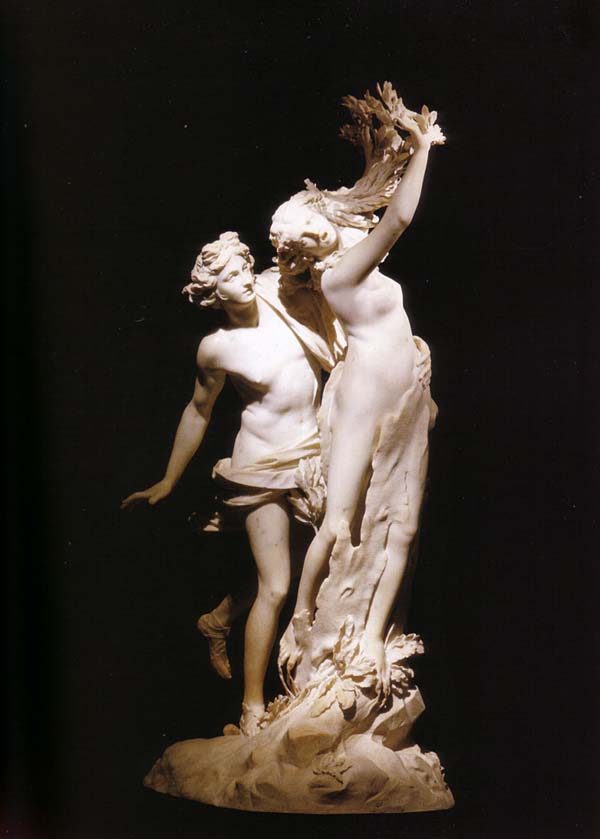Folklore and Mythology
The bay laurel features prominently in folklore, mythology, and even word etymology.

Apollo and Daphne by Gianlorenzo Bernini at the Galleria Borghese in Rome. See The Artchive.
Mythology
In the ancient Greek language, bay laurel was called daphne after the nymph Daphne, daughter of the river God Peneus, with whom the god Apollo fell in love. He pursued her endlessly, but she rejected his love and fled. One day, Apollo glimpsed Daphne in the forest and began to chase her. Being the swifter, he drew closer and closer until he had nearly caught her. At that moment, Daphne called upon her father for help, and he at once turned her into a laurel tree. Then Apollo told her, "Since you cannot be my wife," said he, "you shall assuredly be my tree. I will wear you for my crown. I will decorate you with my harp and quiver; and when the great Roman conquerors lead up the triumphal pomp to the Capitol, you shall be woven into wreaths for their brows. And, as eternal youth is mine, you also shall be always green, and your leaf know no decay." --Bulfinch's Mythology
In Ancient Greece and Rome, laurel wreaths replaced olive to honor winners of the Olympic Games and Pythian Games as well as Roman Emperors. Furthermore, the Oracle at Delphi is said to have chewed bay leaves as part of the prophetic process.
Laurel Language
The Laurel symbolizes victory and merit, referring to the ancient practice of honoring accomplished people with laurel wreaths; for example, the Olympic Games.
laureate: from Latin laurea meaning "crown of laurel"; someone worthy of honor or distinction for great achievements
poet laureate: a distinguished and honored poet. Note: Apollo, who attempted to rape Daphne, is the God of the poets
Nobel laureate: a winner of the Nobel Prize
"rest on one's laurels": to rely on one's past achievements (rather than work for advancement)
baccalaureate: from Latin baca lauri meaning "laurel berry"; a bachelor's degree or a farewell sermon delivered at the commencement ceremonies of a graduating class.
Sources:
http://www.loggia.com/myth/daphne.html
Back to Bay Laurel Main Page